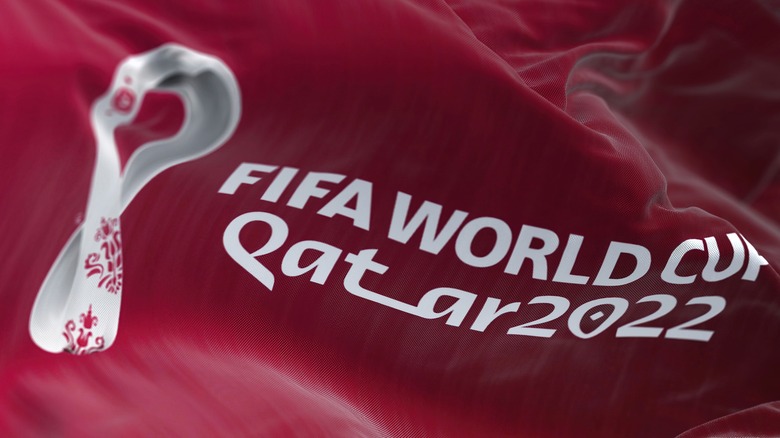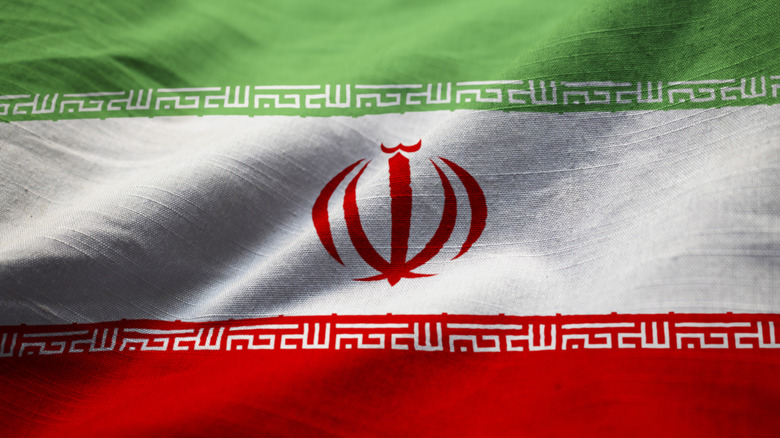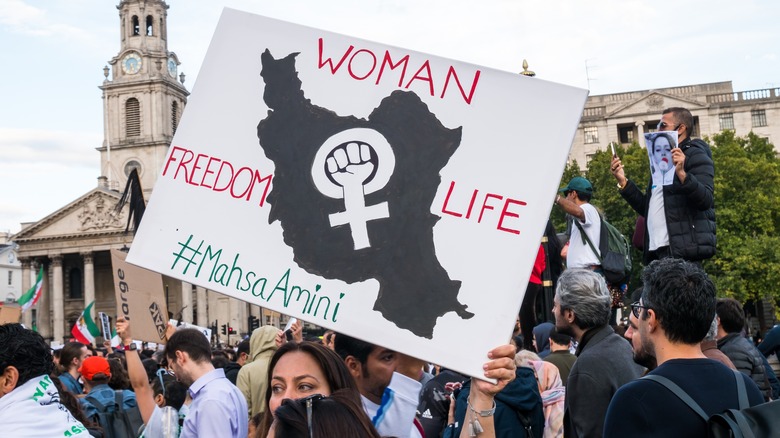Why Iran Wants The US Banned From The World Cup
The sentiments of worldwide sporting events are not only to celebrate the best that each country's athletes have to offer, but also to unite the world under a common love of sport and competition. The summer and winter Olympic Games have grown to encompass many widely recognized sports. However, the global popularity of soccer — more commonly known as football — makes the World Cup another iconic event. Organizers of the Olympics and the World Cup usually attempt to uphold the aforementioned sentiments by setting politics aside, but sometimes that's easier said than done.
For the 2022 World Cup in Qatar, the International Federation of Association Football, or FIFA, urged all participating teams to avoid political issues and "let football take center stage" during the tournament and the accompanying media attention that it brings (per The Independent). That has not entirely been the case thus far in the 2022 World Cup, as players from countries with already strained relationships struggle to comply with FIFA's request.
The USSF posted an altered image of the Iranian flag
The Hill reported that the United States Soccer Federation (USSF) tweeted an image that contained the Iranian flag, but the Islamic symbol at the center of the flag was edited out. Iran's soccer federation legal adviser Safia Allah Faghanpour called the social media post "unethical," explaining that all nations must respect the flags of other nations. An Iranian state news company believes the post to be in breach of FIFA's charter. Such a breach means that they should be barred from competition in the 2022 World Cup.
The USSF deleted the tweet, which they only intended on posting for 24 hours. The organization told CNN that the temporary post was to show "support for the women in Iran fighting for basic human rights." After the 24-hour period, the USSF switched back to using Iran's unedited flag. The U.S. State Department did not have a hand in the USSF's post, but has called Iran's recent actions against women and peaceful protesters "state-sponsored violence" in a statement to CNN.
Support for Iranian women comes from all over the globe
The violence to which the USSF and the State Department are alluding erupted in September of 2022 when Iran's morality police arrested Mahasa Amini for wearing her hijab improperly. Per Yahoo News, Amini died in their custody at just 22 years old. Protests in support of Amini grew and have been ongoing, with deaths numbering anywhere from 300 to more than 500 at the end of November (depending on the source) per The Associated Press. Support for Iranian protesters has been garnered worldwide. The British band Coldplay invited Iranian actor Golshifteh Farahani to sing "Baraye" onstage in Argentina. U.S. President Joe Biden extended support for the "brave women" of Iran as well.
According to The Conversation, head coverings on women had long been common in Iran. However, Iran officially made hijabs mandatory four years after the Islamic Revolution in 1979. Even non-Muslims must wear one when out in public. Women protested in 1979 as well, advocating for "freedom of choice in clothes." Opposition to hijab laws never fully went away, but the movement has seen increased opposition in 2022.


